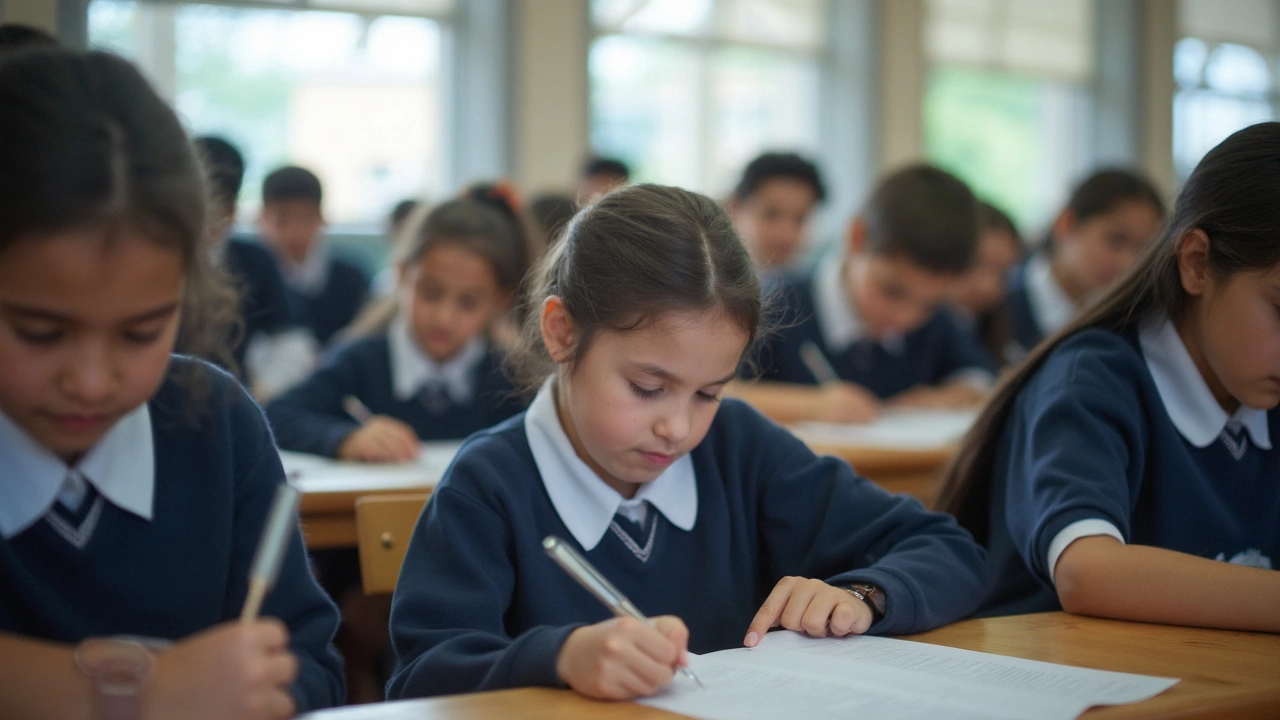UP Board Exams – What You Need to Know and How to Prepare
If you’re a student in Uttar Pradesh, the word “UP Board Exams” probably shows up in every conversation about school. These exams decide your grades, college options, and sometimes even scholarships. So, let’s break down the key dates, study tricks, and what to do after you get your results – all in plain language.
Key Dates and What to Expect
The UP Board usually releases the exam calendar in January. For 2025, the main exams start in late February and run through early April. You’ll see separate slots for Class 10 and Class 12, plus optional subjects if you’ve taken them. Keep an eye on the official website or your school’s notice board – the dates can shift if there’s a weather alert or a holiday.
Right after the exams, the board takes about six weeks to process answer sheets. That means you’ll likely see your results in late May. If you’re planning to apply for colleges, remember that many institutions require your scores by early June, so plan your paperwork accordingly.
Practical Study Tips That Actually Work
One of the biggest myths is that you need to study for 12 hours straight. In reality, short, focused sessions beat marathon cramming. Try the 45‑minute study, 15‑minute break method. During a session, turn off notifications and have only the textbook or notes in front of you. When the break hits, stretch, grab a snack, or take a quick walk – this helps your brain reset.
Make a “must‑know” list for each subject. For maths, write down key formulas; for science, note important reactions or laws; for history, list major events and dates. Review this list every night before bed – the spaced repetition will stick in memory.Don’t ignore past papers. The UP Board exam pattern stays pretty consistent, so solving last year’s question papers gives you a feel for the type of questions and the time you need. Set a timer, finish the paper, then check your answers against the solution key.
If a topic feels tough, teach it to a friend or even to yourself out loud. Explaining concepts aloud forces you to organize thoughts clearly and shows where gaps remain. This simple trick often reveals misunderstandings you didn’t notice while reading silently.
Day‑of‑Exam Checklist
On the exam day, bring your admit card, a valid photo ID, a few pens, and a pencil with an eraser. Keep an extra set of pens in your bag just in case. Arrive at the exam centre at least 15 minutes early – that extra time lets you settle in and read the instructions without rushing.
Read each question carefully. If you’re stuck, move on to the next one and return later. This prevents you from wasting minutes on a single tough question. Use the allocated marks as a guide – spend more time on high‑value questions.
After the Results – Next Steps
When the results drop, don’t panic if you didn’t hit your target. First, get a copy of the detailed mark sheet; it shows subject‑wise scores. If you see an error, you can apply for a re‑evaluation within the board’s stipulated time frame.
If you need to improve your score for college entry, consider a supplementary exam. The UP Board offers a re‑appear option typically in the next session (usually November‑December). Use the break to focus on weak areas, perhaps with a tutor or a study group.
Finally, start gathering documents for college applications – mark sheets, identity proof, and any required certificates. Many colleges also accept provisional results, but double‑check their requirements to avoid surprises.
Bottom line: stay organized, practice regularly, and keep a positive mindset. The UP Board Exams are a milestone, not a roadblock. With the right plan, you can turn them into a stepping stone toward your future goals.
Postponed UP Board Exams in Prayagraj: MahaKumbh Festival Causes Date Shifts
In light of the MahaKumbh festival, the UP Board exams for Class 10 and 12 in Prayagraj have been rescheduled from February 24 to March 9, 2025. This decision, prompted by traffic and safety concerns, was announced by Minister Gulab Devi. The festival's peak coincides with the exams, leading to alternative plans for students in other districts.
VIEW MORE